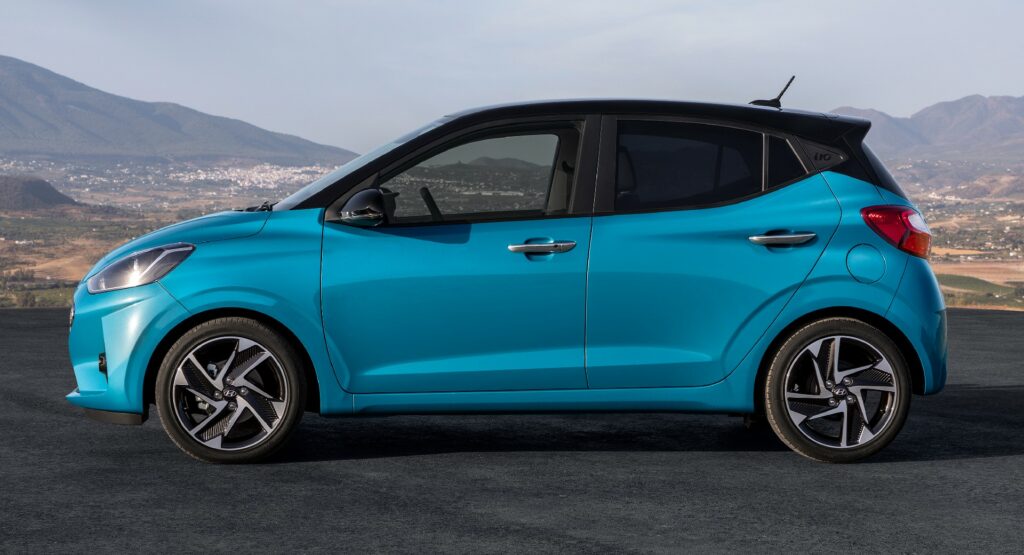Last month, Hyundai confirmed they are developing a small and affordable EV for Europe with a starting price below €20,000 ($20,614) but a new report claims that there is a second EV on the cards. The two models are expected to debut in mid-2023 and late-2024, based on shared underpinnings.
According to Autocar, the EVs will be successors to the Hyundai i10, positioned in the city car segment (A-Segment). They are expected to rival the upcoming VW ID.1 and ID.2, alongside the sibling models from Skoda and Cupra. VW Group is also targeting a €20,000 ($20,614) price tag for the cheapest of its urban EVs, showing that this might become the new norm for the segment.
There is no official information about the design of the EVs but we expect one of them to adopt a similar style to the Hyundai i10, with the other one being slightly roomier and taller like the Hyundai Casper. Note that the tiny SUV is rumored to get an EV variant in 2023 which could be closely related to the aforementioned models.
See Also: Hyundai Casper Van Is A Candidate For The World’s Cutest Mini LCV
We already know that Hyundai’s small EVs will use an integrated drive module (iDM) sourced by BorgWarner, that is able to produce up to 181 hp (135 kW / 184 PS). That sounds too much for a city car so engineers will likely scale it down, or at least reserve the full potential of the electric motors for the yet-unconfirmed N-branded variants.
Profit margins in the smaller segments are quite narrow, with Hyundai and rival automakers admitting it is hard to make money out of urban cars. Thus, we wouldn’t be surprised if the new EVs were based on an electrified version of the tried-and-tested K1 architecture which underpins several Hyundai and Kia models in different markets all over the world.
We expect to learn more about the EVs in the next months, and hopefully grab some spy shots of prototypes during the early testing phase. Besides the small car duo, Hyundai’s plan includes 10 other EV launches in Europe by 2030. Having plenty of zero-emission vehicles will help the Korean automaker comply with the stricter emission regulations before going EV-only in the Old Continent sometime in the next decade.






